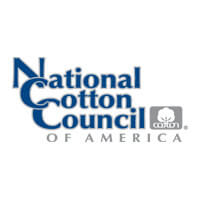The NCC supports the 2020 Navigable Waters Protection Rule (NWPR) saying that reverting to a 1980’s era “waters of the U.S.” rule would be a mistake as it did not help American agriculture.
MEMPHIS, Tenn. – The National Cotton Council supports the 2020 Navigable Waters Protection Rule (NWPR) saying that reverting to a 1980’s era “waters of the U.S.” rule would be a mistake as it did not help American agriculture.
The NCC’s assertion is in response to today’s Biden Administration announcement that it is working to resolve regulatory whiplash caused by constant revisions to America’s surface water rule by taking the nation back to the 1986 Clean Water Act rule that was in place for decades and caused confusion among farmers. This 1980’s rule will be in place until the EPA and the Army Corps of Engineers issue another rule to replace all the previous rules.
NCC Chairman Kent Fountain said the NWPR needs an opportunity to work because it provides agriculture a commonsense and understandable rule that “not only ensures environmental and human health but protects farmland and the right to conduct farming operations in a responsible and economically sustainable manner with flexibility.” Many water features had been removed from federal control in the NWPR, including those that contain water only in response to rainfall, groundwater, many farm and roadside ditches, prior converted cropland and stock watering ponds.
The Georgia cotton producer and ginner noted that comments filed earlier this year with the EPA/Corps by the NCC and the American Cotton Producers (ACP) outlined strong reservations to any attempt by those agencies to erase the NWPR and rewrite federal water law. The comments were submitted after the NWPR was vacated by a U.S. District Court in Arizona in late August.
ACP Chairman Mark McKean, a third-generation California producer, noted in ACP’s comments that a new regulation expanding federal water authority also would create inconsistencies that could negatively affect the partnership USDA is undertaking with U.S. producers to address climate change and expand on-farm conservation practices.


